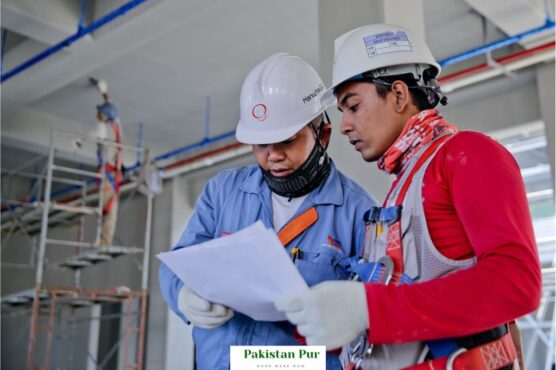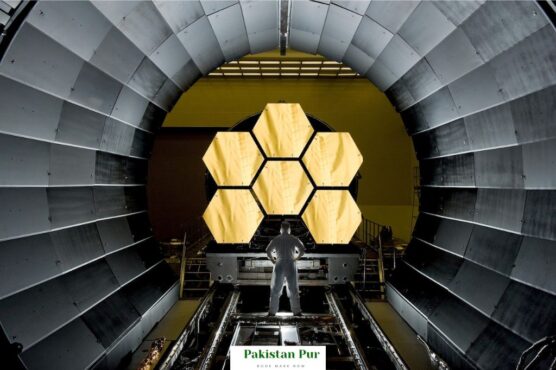
Table of Contents
FSc Pre Engineering opens doors to many educational paths and career paths. There are good choices among the best fields after FSc Pre Engineering in Pakistan that are related to engineering. You can also get into a non-engineering field after FSc Pre Engineering if you did not get good marks.
I will help you figure out which field is best after FSc Pre Engineering in Pakistan. Here, I have prepared for the:
- Tips for Choosing a Field after FSc Pre Engineering
- 25 Best Fields After FSc Pre Engineering
- 10 Best Non-Engineering Fields after FSc Pre Engineering
- Tips for Selecting a University for Your Higher Education
The fields after FSc Pre Engineering we can choose can be the engineering-related fields and nonengineering-related fields. I have covered both for you.
How to Choose a Field after FSc Pre Engineering?
Choosing an education path after completing FSc Pre-Engineering is a critical decision that can shape your future career. Here are some guiding principles to help you make an informed choice on the best after FSc pre engineering fields for you:
- Identify Your Interests and Strengths: What subjects or areas are you most passionate about? Do you enjoy solving complex problems, designing structures, or exploring scientific phenomena? Identifying your interests and strengths can help you choose a field that you will enjoy studying and working in.
- Research Potential Careers: Consider the types of jobs that are available in different fields. What are the job prospects, growth opportunities, and average salaries in those careers? This can help you determine if a particular path aligns with your career goals. To help you with this, I have written a detailed article about the degree programs in engineering that will help you understand the scope, career, and future growth in that field.
- Consider the University’s Reputation: Not all universities are equal. Some have stronger programs in certain areas than others. Research the reputation of the universities you’re considering, including their ranking, faculty, facilities, and alumni success. Checking the university ranking will be helpful in this as well as asking for advice from professionals in the field.
- Evaluate the Curriculum: Look at the subjects offered in the program. Does it cover topics you’re interested in? Will it provide you with the skills you need for your desired career?
- Seek Advice: Talk to people who are already in the field, such as professors, professionals, or older students. They can provide valuable insights and advice based on their personal experiences.
- Financial Considerations: Consider the cost of the program. Can you afford the tuition fees, living expenses, and other costs associated with studying at a particular university? Are there scholarships or financial aid available that can help offset these costs?
- Location: Consider the location of the university. Would you prefer to study close to home, or are you open to studying in a different city or even abroad? The location can significantly impact your university experience and lifestyle.
Remember, there’s no one-size-fits-all answer. The best education path for you depends on your individual interests, goals, and circumstances.

Best Fields after FSc Pre Engineering
After completing FSc Pre Engineering, there are numerous fields that offer good hiring prospects. Here is a list of the top 25 engineering-related fields: Each field mentions the degree program you will enroll in and start moving toward your dream career.
- Mechanical Engineering: BS Mechanical Engineering.
- Civil Engineering: BS Civil Engineering.
- Electrical Engineering: BS Electrical Engineering.
- Computer Science Engineering: BS Computer Science.
- Chemical Engineering: BS Chemical Engineering.
- Petroleum & Gas Engineering: BS Petroleum and Gas Engineering.
- Aeronautical Engineering: BSc Aeronautical Engineering.
- Telecommunication Engineering: BS Telecommunication Engineering.
- Industrial Engineering: BS Industrial Engineering.
- Environmental Engineering: BS Environmental Engineering.
- Mechatronics Engineering: BS Mechatronics Engineering.
- Software Engineering: BS Software Engineering.
- Electronics Engineering: BS Electronics Engineering.
- Aerospace Engineering: BS Aerospace Engineering.
- Agricultural Engineering: BS Agricultural Engineering.
- Biomedical Engineering: BS Biomedical Engineering.
- Structural Engineering: BS Structural Engineering.
- Marine Engineering: BS Marine Engineering.
- Nuclear Engineering: BS Nuclear Engineering.
- Automotive Engineering: BS Automotive Engineering.
- Robotics Engineering: BS Robotics Engineering.
- Materials Engineering: BS Materials Engineering.
- Metallurgical Engineering: BS Metallurgical Engineering.
- Power Engineering: BS Power Engineering.
- Textile Engineering: BS Textile Engineering.
- Bachelor of Technology: B-Technology
These fields have been recognized as having high chances of employment after graduation. However, the demand for specific engineering fields can vary based on industry needs and technological advancements.
Here is a short introduction to each field and bachelor-level degree program you can do in Pakistan. I have also briefly discussed the scope of each field. Read along to know all the options after FSc pre engineering.

Mechanical Engineering: BS Mechanical Engineering
Mechanical Engineering is a discipline that applies the principles of physics and materials science for analysis, design, manufacturing, and maintenance of mechanical systems.
BS Mechanical Engineering in Pakistan is a 4-year degree program that equips students with an understanding of core analytical and advanced aspects of mechanical engineering, including the production and usage of heat and mechanical power, design and analysis of production, and more.
Mechanical engineering is one of the best options after FSc pre engineering. It is also one of the fields with a lot of job opportunities.
Graduates can pursue careers in diverse sectors such as manufacturing, automotive, aerospace, and energy. The starting salary for BS Mechanical Engineering graduates varies but can be around PKR 25,000 to 35,000 approximately.
Some of the top institutions offering this program include the University of Lahore, Superior University Lahore, and Mehran University Of Engineering & Technology.
Civil Engineering: BS Civil Engineering
Civil Engineering, a cornerstone of engineering studies, focuses on designing, constructing, and maintaining physical and natural environments.
In Pakistan, the BS Civil Engineering program covers these aspects in-depth, preparing students for a promising career in various sectors such as construction, transportation, and environmental engineering. With an ever-growing infrastructure, the scope for civil engineers is vast in Pakistan. Upon graduation, they can work as project engineers, structural engineers, or consultants, among other roles.
The starting salary for civil engineers in Pakistan ranges from PKR 25,000 to 35,000 per month approximately. Top institutions offering this degree include the National University of Sciences and Technology, UET Lahore, NEDUET, MUET, UET Taxila, GIKI, and BUITEM.
Electrical Engineering: BS Electrical Engineering
Electrical Engineering is a dynamic field focusing on the application of electricity, electronics, and electromagnetism.
In Pakistan, the BS Electrical Engineering program equips students with knowledge in areas like Power, Electronics, and Telecom Engineering. Graduates can expect to find opportunities in sectors such as power generation, telecommunications, manufacturing, and IT, among others.
The starting salary for electrical engineers in Pakistan varies, but it’s typically around PKR 25,000 to 35,000 per month. Some of the top institutions offering this program include COMSATS University Islamabad (CUI), the National University of Sciences, Lahore University of Management Sciences (LUMS), the University of Engineering and Technology (UET), and Habib University.
Computer Science Engineering: BS Computer Science
The Bachelor of Science in Computer Science is a four-year degree program in Pakistan that focuses on developing advanced computer systems.
It covers a wide range of topics including web development, networking, and database management. This degree offers various career paths such as software development, data analysis, and IT project management.
BS Computer Sciences and Software engineering is one of the most popular fields currently and offers probably the most career options after FSc pre engineering.
The top institutions for this program include the National University of Sciences and Technology (NUST), FAST NUCES Lahore, Punjab University, and Lahore University of Management Sciences (LUMS). LUMS, in particular, places a strong emphasis on practical skills.
Graduates from these institutions have enjoyed excellent job placements both within Pakistan and internationally. The starting salary for computer science graduates can vary, but it is generally competitive due to the high demand for these skills in the job market.
Read our Ultimate Guide to Software Engineering in Pakistan here.
Chemical Engineering: BS Chemical Engineering
Chemical Engineering is a branch of engineering that applies physical sciences, life sciences, and applied mathematics to transform and use chemicals, materials, and energy efficiently.
Chemical engineering is considered one of the most lucrative fields after FSc Pre Engineering. You can go to Middle East and make a fortune.
BS Chemical Engineering in Pakistan is a 4-year program that provides in-depth knowledge of chemical processes and their applications.
The program has a broad scope, with graduates finding opportunities in industries such as pharmaceuticals, food processing, and petroleum. Careers range from process engineer to project manager, and the starting salary can be approximately PKR 25,000 to 30,000.
Top institutions offering this program include the Lahore University of Management Sciences (LUMS), NED University of Engineering and Technology, COMSATS University Islamabad, and the Pakistan Institute of Engineering and Applied Sciences.
Petroleum & Gas Engineering: BS Petroleum and Gas Engineering
Petroleum & Gas Engineering is a field of engineering concerned with the activities related to the production of hydrocarbons, which can be either crude oil or natural gas.
BS Petroleum and Gas Engineering in Pakistan is a 4-year program that prepares students for exploration, drilling, exploitation, and development of oil and gas resources. The demand for these professionals is high, given Pakistan’s rich petroleum and gas reserves.
Careers include reservoir engineers, drilling engineers, and production engineers. The starting salary may range from PKR 30,000 to 50,000.
Top institutions offering this program include the University of Engineering and Technology (UET), Mehran University of Engineering & Technology, and Dawood University of Engineering & Technology

Aeronautical Engineering: BSc Aeronautical Engineering
Aeronautical Engineering is a specialized field of engineering focused on the design, development, testing, and production of aircraft and related systems.
BSc Aeronautical Engineering in Pakistan is a specialized degree program that imparts knowledge about the design, development, testing, and production of aircraft and related systems.
Graduates can anticipate broad career opportunities in aviation companies, defense, and space organizations. The starting salary varies but typically ranges from PKR 30,000 to 50,000 per month.
The top institutions offering this degree include the Institute of Space Technology, Islamabad, Air University, and College of Aeronautical Engineering (CAE, NUST), which are renowned for their comprehensive curriculum and state-of-the-art facilities.
Telecommunication Engineering: BS Telecommunication Engineering
Telecommunication Engineering is a field of engineering focused on the design and maintenance of systems and services that transmit data across long distances, such as phone lines, cellular networks, and the internet.
Telecommunication is a well-established sector in Pakistan and it offers a good career. You can say that it is one of the very good fields after FSc Pre Engineering.
The Bachelor of Science in Telecommunication Engineering in Pakistan is a four-year course that delves into the design, installation, and management of telecommunication systems.
The program provides a robust foundation in areas such as digital communications, wireless networks, and signal processing. Telecommunication engineers have a wide scope in sectors such as telecom companies, IT firms, and broadcasting organizations.
They can work in roles such as Network Analysts, Systems Engineers, or Telecom Consultants. The starting salary for telecom engineers in Pakistan ranges from PKR 25,000 to 30,000 per month.
Top institutions offering this degree include the Pakistan Institute of Engineering and Applied Sciences, COMSATS Institute of Information Technology, the National University of Sciences and Technology, Air University, and Bahria University.
Industrial Engineering: BS Industrial Engineering
Industrial Engineering is a field of engineering that focuses on optimizing complex processes, systems, or organizations by developing, improving, and implementing integrated systems of people, money, knowledge, information, equipment, energy, and materials
BS Industrial Engineering in Pakistan is a comprehensive program that integrates technical, human, and management aspects of products and processes.
The degree focuses on planning, designing, developing, and improving integrated systems. Graduates often find opportunities in manufacturing, production engineering, and management. The starting salary can range from PKR 25,000 to 35,000.
The scope of industrial engineering is rather limited in Pakistan due to economic conditions. Though it is one of the well-paying fields after FSc Pre Engineering but you may struggle to secure a job in Pakistan.
Top institutions offering this program include the Mehran University Of Engineering & Technology, the University of Engineering and Technology in Taxila, and the National University of Sciences and Technology (NUST).
Environmental Engineering: BS Environmental Engineering
Environmental Engineering is a branch of engineering that uses scientific and engineering principles to improve the environment, providing healthy water, air, and land for human habitation and for other organisms.
BS Environmental Engineering in Pakistan is a 4-year degree program that educates students on how to design solutions for environmental problems, including pollution control and sustainable infrastructure.
Graduates can pursue careers as environmental consultants, waste management engineers, and water quality engineers. The starting salary for these professionals can range from PKR 25,000 to 30,000.
Top institutions offering this program include the University of Agriculture, Faisalabad, COMSATS Institute of Information Technology, and the University of Punjab.
Mechatronics Engineering: BS Mechatronics Engineering
Mechatronics is an interdisciplinary engineering field that combines principles of mechanical, electrical, computer, and systems design to create smart, automated and self-correcting systems.
Mechatronics Engineering is a multidisciplinary field that combines mechanical engineering, electronics, computer science, and control systems to design and manufacture intelligent products and processes.
BS Mechatronics Engineering in Pakistan is a 4-year program that combines mechanical engineering, electronics, control engineering, and computer science.
With the rise of automation and robotics, the scope of this field is expanding rapidly. Graduates can pursue careers as control system engineers, automation engineers, and more. The starting salary can range from PKR 25,000 to 35,000 approximately.
Top institutions offering this program include the National University of Sciences and Technology (NUST), University of Engineering and Technology (UET), and Shaheed Zulfiqar Ali Bhutto Institute of Science and Technology (SZABIST).
Software Engineering: BS Software Engineering
Software Engineering is a branch of computer science that involves the systematic application of engineering approaches to the development, maintenance, and testing of software.
BS Software Engineering in Pakistan is a four-year degree program that equips students with technical knowledge of computer systems, programming languages, and software development. The program offers hands-on experience covering all aspects of software engineering, including problem modeling and analysis.
Graduates find opportunities in diverse industries such as IT firms, software houses, and tech startups, with roles like Software Developer, Systems Analyst, or IT Project Manager. The starting salary typically ranges from PKR 25,000 to 50,000 approximately.
Top universities offering this program include the Virtual University of Pakistan, Karachi Institute of Economics and Technology, Superior University Lahore, and the Mirpur University of Science and Technology.

Electronics Engineering: BS Electronics Engineering
Electronics Engineering is a branch of engineering that focuses on the design, development and testing of electronic devices and systems, including circuits, transistors, and microchips.
BS Electronics Engineering in Pakistan is a four-year program that integrates mathematics and physics to educate students about electronic devices, computer building, and programming.
This field offers potential careers in sectors like telecommunications, aviation, and power generation. The starting salary for electronics engineers in Pakistan can range from PKR 25,000 to 35,000 approximately.
Top institutions offering this degree include COMSATS Institute of Information Technology, National University of Sciences and Technology (NUST), and Government College University, Lahore.
Aerospace Engineering: BS Aerospace Engineering
Aerospace Engineering is a field of engineering that designs and develops aircraft, spacecraft, and related technologies, encompassing areas such as aerodynamics, avionics, propulsion, and materials science.
BS Aerospace Engineering in Pakistan is a 4-year program that focuses on the design, development, testing, and production of aircraft and spacecraft.
The degree offers a wide scope in both public and private sectors, including organizations like the Pakistan Aeronautical Complex, Air Weapons Complex, and National Engineering and Scientific Commission. Graduates can work as aerospace designers, flight testers, or propulsion engineers. The starting salary typically ranges from PKR 35,000 to 45,000 approximately.
Top institutions offering this program include the Institute of Space Technology, National University of Sciences and Technology (NUST), and the University of Engineering and Technology (UET) Lahore.
Agricultural Engineering: BS Agricultural Engineering
Agricultural Engineering is a discipline that combines elements of civil, mechanical, and chemical engineering with plant and animal biology to develop efficient and sustainable agricultural systems.
Agricultural Engineering is a discipline that combines engineering principles with agricultural sciences to optimize agricultural systems and technologies.
In Pakistan, the BS Agricultural Engineering is a 4-year program that covers areas such as soil management, land development, and farm machinery design. Graduates can work as agricultural engineers, designing and improving machinery and farming practices. The starting salary typically ranges from PKR 25,000 to 35,000 approximately.
Notable institutions offering this program include the University of Agriculture Faisalabad, KPK Agricultural University Peshawar, and Sindh Agriculture University Tandojam.
Biomedical Engineering: BS Biomedical Engineering
Biomedical Engineering is an interdisciplinary field that applies engineering principles and design concepts to medicine and biology for healthcare purposes, including diagnosis, monitoring, and therapy.
BS Biomedical Engineering in Pakistan is a 4-year program that applies engineering principles to the medical field. This multidisciplinary degree combines biology, medicine, and engineering.
It’s a rapidly growing field with a high demand, offering careers in bioinstrumentation, biomechanics, clinical engineering, and more. The starting salary varies widely depending on the specialization, but generally ranges from PKR 30,000 to 50,000.
Top institutions offering this program include NED University of Engineering and Technology (NED UET), Riphah International University, and Superior University.
Structural Engineering: BS Structural Engineering
Structural Engineering is a specialty within civil engineering that involves the design and analysis of structures, such as buildings and bridges, to ensure they can withstand environmental forces and human use.
BS Biomedical Engineering in Pakistan is a 4-year program that applies engineering principles to the medical field. This multidisciplinary degree combines biology, medicine, and engineering.
It’s a rapidly growing field with a high demand, offering careers in bioinstrumentation, biomechanics, clinical engineering, and more. The starting salary varies widely depending on the specialization, but generally ranges from PKR 30,000 to 50,000.
Top institutions offering this program include NED University of Engineering and Technology (NED UET), Riphah International University, and Superior University.
If you want to know about your options after FSc Pre-medical, here is our detailed guide.
Best degrees after FSc Pre-Medical.
Marine Engineering: BS Marine Engineering
Marine Engineering is a branch of engineering that deals with the design, development, operation and maintenance of the propulsion, powering and mechanization aspects of naval vessels and structures.
BS Marine Engineering in Pakistan is a multidisciplinary field that covers the design, construction, operation, and maintenance of mechanical systems on marine vessels.
The scope of this degree is broad, with opportunities in sectors like shipping companies, ports, and ship manufacturing firms. Typical roles can include Marine Engineer, Naval Architect, or Ship Surveyor.
The starting salary for marine engineers in Pakistan ranges from PKR 30,000 to 50,000 approximately. Top institutions offering this program include the Pakistan Marine Academy, NED University of Engineering and Technology, and the Institute of Marine Sciences at the University of Karachi.

Nuclear Engineering: BS Nuclear Engineering
Nuclear Engineering is a field of engineering that involves the design, development, and management of systems and processes involving nuclear and radiation-based technologies.
BS Nuclear Engineering in Pakistan is a four-year program that focuses on the application and development of nuclear energy and radiation for industries such as power production, medicine, and environmental monitoring.
The degree offers a broad scope, with opportunities in research facilities, nuclear power plants, and government agencies. Graduates may find roles as nuclear engineers, radiation protection specialists, or nuclear equipment operation technicians. The starting salary typically ranges between PKR 30,000 to 45,000.
Top institutions offering this program include the Pakistan Institute of Engineering and Applied Sciences, Quaid-i-Azam University, and the University of Engineering and Technology, Lahore.
Automotive Engineering: BS Automotive Engineering
Automotive Engineering is a branch of engineering that focuses on designing, manufacturing, and operating automobiles, including mechanical, electrical, electronic, software, and safety elements.
BS Automotive Engineering in Pakistan is a program that focuses on the design, development, and production of vehicles. It has a wide scope, with graduates able to work in various sectors such as automobile manufacturing, maintenance, and transportation.
Career opportunities include automotive design engineer, vehicle dynamics controller, and powertrain engineer. The starting salary typically ranges from PKR 25,000 to 35,000.
Notable institutions offering this program include the National University of Sciences and Technology (NUST), COMSATS Institute of Information Technology, and the University of Engineering and Technology (UET) Lahore.
Robotics Engineering: BS Robotics Engineering
Robotics Engineering is a branch of technology that designs, constructs, operates, and applies robots, as well as computer systems for their control, sensory feedback, and information processing.
BS Robotics Engineering in Pakistan is a multidisciplinary program that integrates electronic, mechanical, and computer technology.
The program aims to equip students with the knowledge and skills to design, develop, and implement robotics and intelligent systems. Careers in this field are diverse, ranging from manufacturing installations to industrial automation. The starting salary typically ranges from PKR 30,000 to 40,000 approximately.
Top institutions offering this program include the National University of Sciences and Technology (NUST), COMSATS Institute of Information Technology, and Superior University.
Materials Engineering: BS Materials Engineering
Materials Engineering is a field of engineering that involves the design, analysis, and use of materials in applications to solve complex problems in industries such as aerospace, electronics, and healthcare.
BS Materials Engineering in Pakistan is a program that focuses on the study of materials such as metals, ceramics, and polymers.
It combines theoretical training with hands-on experimental work. The scope of this degree is broad, with opportunities in sectors like aerospace, electronics, and manufacturing. Careers may include Materials Engineer, Metallurgical Engineer, or Ceramics Engineer. The starting salary for materials engineers in Pakistan generally ranges from PKR 25,000 to 35,000 approximately.
Top institutions offering this program include the Institute of Space Technology, Islamabad, COMSATS University Islamabad (CUI), National University of Sciences & Technology, and Quaid-i-Azam University.
Metallurgical Engineering: BS Metallurgical Engineering
Metallurgical Engineering is a branch of engineering that involves the study, design, and implementation of processes that transform raw materials into useful, durable products using heat and chemical treatments.
BS Metallurgical Engineering in Pakistan is a discipline that studies the physical and chemical behavior of metallic elements and their mixtures, known as alloys.
The field offers a broad scope, with opportunities in industries like automotive, aerospace, energy, and materials manufacturing. Careers in this field may include metallurgical engineer, materials scientist, or quality control engineer.
The starting salary for Metallurgical Engineers in Pakistan typically ranges from PKR 35,000 to 50,00 approximately.
Top institutions offering this program include the National University Of Science & Technology, Quaid-i-Azam University, and the University of Agriculture, Faisalabad.
Power Engineering: BS Power Engineering
Power Engineering is a subfield of engineering that deals with the generation, transmission, distribution, and utilization of electric power and electrical devices.
BS Power Engineering in Pakistan is a program that concentrates on the generation, distribution, and transmission of electrical power.
The scope is broad, with opportunities in power plants, transmission lines operations, and utility services. Careers include Power Systems Engineer, Transmission Engineer, or Power Plant Operator. The starting salary typically ranges from PKR 25,000 to 40,000 approximately.
Top institutions offering this degree are the National University of Sciences and Technology (NUST), University of Engineering and Technology (UET) Lahore, and NED University of Engineering and Technology.
Textile Engineering: BS Textile Engineering
Textile Engineering is a field of engineering that involves the design and control of all aspects of fiber, textile, and apparel processes, products, and machinery.
BS Textile Engineering in Pakistan is a program that focuses on transforming fiber into yarn and yarn into fabric, encompassing all four sections of textile.
It offers a wide scope in the textile industry, one of the largest employment sectors in Pakistan. Career opportunities include textile production manager, quality control supervisor, and product development engineer.
The starting salary ranges from PKR 4 to 6 lakh per annum within 2 to 3 years of industry experience. Top institutions offering this program include the National Textile University, Mehran University of Engineering & Technology, and the University of Management and Technology.
Bachelor of Technology: B-Tech
Bachelors of Technology (B.Tech) in Pakistan is a four-year honors degree program focusing on practical and skill-based knowledge in fields like Civil, Electrical, Electronics, and Mechanical Technology.
The scope of B.Tech is vast, offering a wide range of career opportunities in various industries. Job prospects include roles in technology development, system management, and consultancy. The starting salary for B.Tech graduates varies but is generally competitive, reflecting the high demand for these skills.
Top institutions offering B.Tech include Preston University, the Institute of Southern Punjab, and Hajvery University.
We have discussed the top fields after FSc pre engineering in engineering-related fields. Let’s look at the non-engineering fields if you have secured not enough marks in FSc Pre Engineering.

6 Best Non-Engineering Fields after FSc Pre Engineering
After completing FSc Pre Engineering, students in Pakistan have a variety of non-engineering fields to consider. Here are the top 6:
- Business Studies: This field covers management principles and economic theory, providing a broad understanding of business operations.
- Accounting: Students learn about financial reporting, taxation, auditing, and other key areas of accounting.
- Economics: This program provides an understanding of economic concepts and policies.
- Advertising & Marketing: This field focuses on developing strategic communication skills and creative thinking.
- Law Studies: You can get into law education, do BA, or LLB, and practice as a lawyer. The educational path can also make you a judge after some legal practice.
- Journalism: Offers a wide variety of career opportunities in journalism, content creation, and publishing.
- Architecture: This program combines art, science, and technology to design buildings.
How to select the university for your engineering degree?
Selecting the right university for your engineering degree involves several key considerations:
- Accreditation: Ensure the institution is accredited by a recognized body. In Pakistan, the Pakistan Engineering Council (PEC) accredits engineering programs.
- Curriculum: Review the course content and see if it aligns with your career goals and interests.
- Faculty: Look into the qualifications and experience of the faculty members.
- Research Opportunities: Universities with strong research programs can provide you with hands-on experience and opportunities to work on cutting-edge projects.
- Facilities: Good engineering programs will have well-equipped labs and facilities.
- Placement Record: Check the university’s track record for graduate employment. High placement rates often indicate strong industry connections.
- Location: Consider if you prefer a university close to home or are open to studying in a different city or country.
- Cost: Evaluate the tuition fees and other costs against your budget.
- Rankings: While not the sole indicator of quality, rankings can give an idea about the university’s reputation.
Remember, the best university depends on your individual needs and career goals.
How to join Pak army after FSc pre engineering?
To join the Pakistan Army after completing FSc pre-engineering, you can apply for the Technical Cadet Course (TCC). You need to have at least 70% qualification in FSc or a recognized A-Level in physics, chemistry, and mathematics.
After applying, you’ll go through a selection process which includes an initial test, physical tests, and interviews.
Upon selection, you will undergo one year of military training at the Pakistan Military Academy (PMA) and four years of study at a military college. After graduation, you will be commissioned as a Captain in the Pakistan Army.
Join Pak Army after FSc Pre Engineering For Females
Joining the Pakistan Army after FSc Pre Engineering is a commendable career choice for females. Here are some of the options:
- PMA Long Course: Females can join the Pakistan Military Academy (PMA) through the Long Course. However, they must have completed a 2-year graduate degree in addition to FSc.
- Technical Cadet Course (TCC): This allows students to join as a Captain in the Corps of Engineers, Signals, or Electrical and Mechanical Engineers. But it requires a degree in engineering fields. Other process is the same as it is for boys. Please read the above section.
Remember that each course has its eligibility criteria, including age, marital status, nationality, and physical standards.
FAQs
Can you do MBBS after FSc pre engineering?
Yes, you can pursue MBBS after FSc Pre-Engineering in Pakistan, but it requires an additional FSc in Biology as MBBS admission criteria include Biology as a compulsory subject. Hence, Pre-Engineering students must complete an additional year studying Biology to become eligible.
Can we do BBA after FSc pre engineering?
Yes, students can pursue a Bachelor of Business Administration (BBA) after completing FSc Pre Engineering. The program provides a foundational understanding of business and management principles, equipping students with the skills needed for a variety of business careers.
Can we do software engineering after FSc pre engineering?
Yes, you can pursue a degree in Software Engineering after completing FSc pre-engineering. After passing the FSc pre-engineering examination, you are eligible to apply for a software engineering program or any other branch of engineering at a university.
It’s worth noting that many students with an FSc pre-engineering background opt for BSc Engineering programs. However, you can also consider programs like BTech, BSc Computer Science, or Bachelor of Computer Application to become a software engineer.
Remember to check the admission requirements of the specific university and program you’re interested in, as they may have additional prerequisites.
Can I do ACCA after FSc pre engineering?
Yes, you can pursue ACCA (Association of Chartered Certified Accountants) after completing FSc pre-engineering. ACCA does not require specific subject background, meaning students from any discipline can start ACCA.
However, it’s important to note that ACCA is a professional qualification in accounting, finance, and management. While it doesn’t require a background in these areas, having familiarity with them could be beneficial.
To become a Chartered Accountant through the ACCA, you need at least 3 years of relevant accounting work experience after you have completed your ACCA exams.
You can start with the FIA (Foundations in Accountancy) route, which involves doing FAB, FMA, and FFA papers. Once done with these three, you can register for the ACCA program.
The duration of the ACCA program is typically 4 years.
Keep in mind that while it’s possible to do ACCA after FSc pre-engineering, it would be a major shift from engineering to accounting. It’s important to carefully consider your interests and career aspirations before making such a decision.
Can I Do CA After FSc Pre Engineering?
Yes, you can pursue Chartered Accountancy (CA) after completing FSc Pre-Engineering. The Institute of Chartered Accountants of Pakistan (ICAP) allows students from all academic backgrounds, including Pre-Engineering, to start the CA program as long as they meet the eligibility criteria.
Leave a Reply